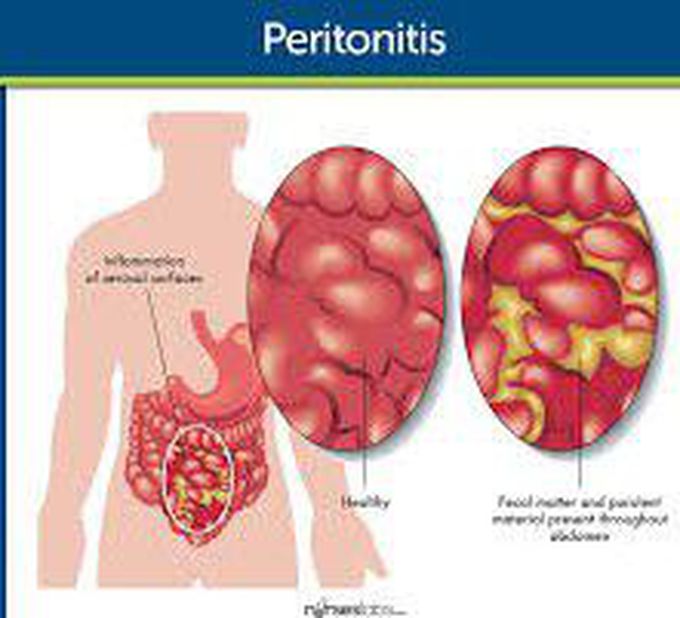


Causes of peritonitis
Causes Infection of the peritoneum can happen for a variety of reasons. In most cases, the cause is a rupture (perforation) within the abdominal wall. Though it's rare, the condition can develop without an abdominal rupture. Common causes of ruptures that lead to peritonitis include: Medical procedures, such as peritoneal dialysis. Peritoneal dialysis uses tubes (catheters) to remove waste products from your blood when your kidneys can no longer adequately do so. An infection may occur during peritoneal dialysis due to unclean surroundings, poor hygiene or contaminated equipment. Peritonitis may also develop as a complication of gastrointestinal surgery, the use of feeding tubes, or a procedure to withdraw fluid from your abdomen, and rarely as a complication of a colonoscopy or endoscopy. A ruptured appendix, stomach ulcer or perforated colon. Any of these conditions can allow bacteria to get into the peritoneum through a hole in your gastrointestinal tract. Pancreatitis. Inflammation of your pancreas (pancreatitis) complicated by infection may lead to peritonitis if the bacteria spreads outside the pancreas. Diverticulitis. Infection of small, bulging pouches in your digestive tract (diverticulosis) may cause peritonitis if one of the pouches ruptures, spilling intestinal waste into your abdominal cavity. Trauma. Injury or trauma may cause peritonitis by allowing bacteria or chemicals from other parts of your body to enter the peritoneum. Peritonitis that develops without an abdominal rupture (spontaneous bacterial peritonitis) is usually a complication of liver disease, such as cirrhosis. Advanced cirrhosis causes a large amount of fluid buildup in your abdominal cavity. That fluid buildup is susceptible to bacterial infection.

